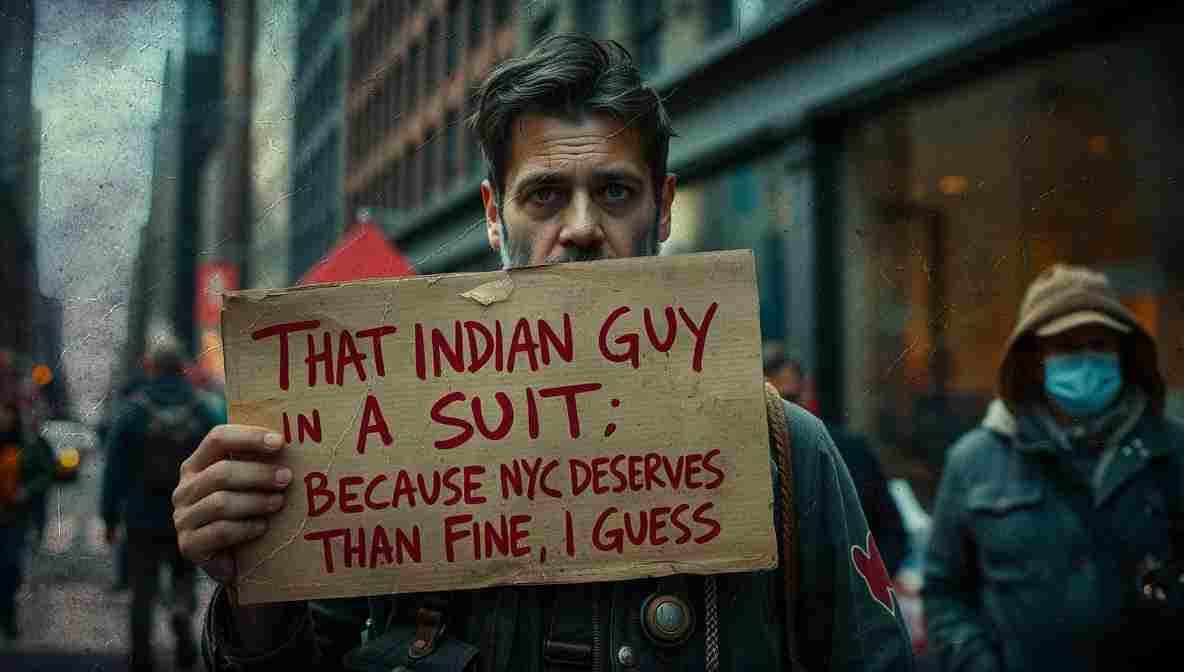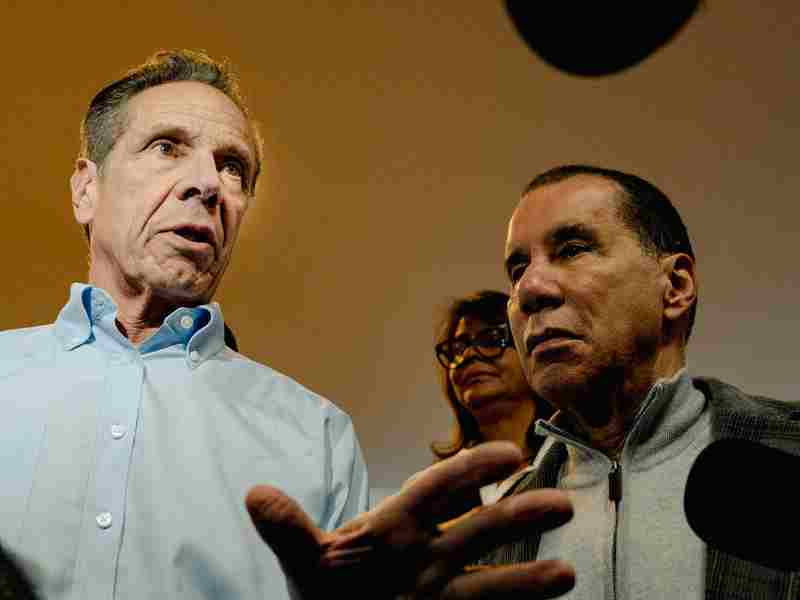Mamdani’s Muslim-Identity Pledge: Signal or Strategy?
By Bohiney Magazine investigative desk
The moment that changed the script
On a crisp October afternoon in Queens, Zohran Mamdani stood outside a mosque, visibly emotional, and told a crowd and a watching nation that he would lean harder into his Muslim identity in the final stretch of the mayoral race. The speech – equal parts personal defense and political line in the sand – came after weeks of fierce criticism, heated debates about Israel and Gaza, and charges from opponents that his politics were out of step with mainstream New York voters. The question now is simple but consequential: is this a sincere act of identity politics or a calculated campaign strategy designed to consolidate a coalition that has already carried him to frontrunner status? The Washington Times+1
What he said – and why it matters
Mamdani’s lines about faith were not an isolated sermon; they were a strategic response to a campaign environment in which accusations of disloyalty and Islamophobia have been hurled from multiple directions. He has framed much criticism as racially or religiously motivated, positioning himself as both a target and a representative of communities he says are under assault. That posture resonates with substantial blocs of voters in New York – particularly Muslim, South Asian, and younger progressive Jewish voters – while alarming others, including numerous rabbis and conservative organizations who have publicly warned against electing him. The dynamic is messy and high-stakes. theguardian.com+1
From a practical standpoint, the pledge to “embrace” his Muslim identity is also a campaign tool: it clarifies who Mamdani is to undecided voters and rallies a base that might otherwise sit out a contentious election. According to recent polling, Mamdani has maintained a lead over Andrew Cuomo in several surveys, which suggests this approach has not yet cost him the broad coalition he needs – but it is also intensifying opposition that could matter in a close general election. ny1.com+1
The coalition he’s courting
Mamdani’s coalition is the product of several political currents. Grassroots organizing, energetic door-to-door canvassing, and endorsements from national progressives have amplified his platform – free buses, expanded childcare, rent freezes – into a city-wide affordability argument that appeals across boroughs. At the same time, his positions on Israel/Palestine and his outspoken critique of the NYPD have activated progressive organizers and galvanized sections of the city’s large Muslim and Arab communities. The result: a candidate who simultaneously scares establishment donors and excites a motivated ground game. Zohran for NYC+1
But turning identity into votes is not automatic. Conservative and centrist groups are mobilizing in response. Over a thousand rabbis signed a public warning about Mamdani’s positions, and high-profile local religious leaders have launched outreach efforts to their congregations. That pushback has a real electoral logic: it aims to persuade swing and moderate Jewish voters, and to drive turnout in neighborhoods where Mamdani’s message may be weaker. theguardian.com+1
Campaign mechanics: how the message is being delivered
Inside the Mamdani campaign – at least as reported publicly – the messaging has been multi-pronged. He has done one-on-one meetings with business leaders to calm investor nerves, staged visible outreach at synagogues and temples to broaden appeal, and leaned on surrogates like Bernie Sanders and Alexandria Ocasio-Cortez to amplify his policy credibility. The campaign website underscores an affordability platform that is intended to broaden his appeal beyond ideological niches. Those moves suggest a deliberate effort to convert identity solidarity into governing legitimacy. Bloomberg+1
At the same time, campaign housekeeping has been a liability. A watchdog group recently filed criminal referrals alleging illegal foreign donations to Mamdani’s campaign; the campaign has said it has refunded questionable contributions and is cooperating with authorities. The controversy has the potential to distract from identity messaging and make the candidate vulnerable to attacks about competence and compliance – issues that often matter as much to swing voters as the high-minded identity arguments that lit the mosque speech. Squarespace+1
What insiders and observers are saying
Published reporting offers a mix of interpretation from insiders and close observers. A New Yorker profile described Mamdani’s rise as the product of a shrewd combination of grassroots energy and opportunistic timing – noting how positions that might have sunk other candidates became strengths after national shifts around Gaza politics. Vanity Fair and other outlets quote Cuomo insiders worried about their own campaign’s ability to blunt Mamdani’s momentum. Those accounts paint a picture of a campaign that is both disciplined and improvisational – disciplined enough to mobilize a movement; improvisational enough to face self-inflicted controversies. The New Yorker+1
It’s worth stressing: much of what drives narrative about Mamdani’s identity strategy is public reaction. Rabbis, watchdogs, national figures and the New York press are all contributing to a rhetorical ecology that amplifies identity talk. Some of that reaction is substantive policy critique. Much has the tenor of cultural signal-flaring – loud, tribal, and often decisive in swing precincts. theguardian.com+1
Cause and effect: does identity mobilization translate to turnout?
Political science offers a mixed set of answers about whether identity appeals reliably increase turnout. In a city like New York, where neighborhood ties and institutional endorsements matter, identity can be a decisive mobilizing force – but it usually needs to be paired with tangible benefits voters can feel: jobs, housing relief, safer subways. Mamdani’s team seems conscious of that calculus; his affordability policies are the transactional side of a campaign that leans on identity for passion and on policy for persuasion. The upshot is that identity functions best as an amplifier of a practical agenda, not as a substitute for one. Al Jazeera+1
The risk: backlash, legal distractions, and coalition fragility
Embracing Muslim identity is not without risk. It provides opponents with fodder for claims that Mamdani is more interested in symbolic positioning than governing competence. It makes the campaign susceptible to smear and to well-timed controversies – like the criminal referrals over donations – that are easy to package as proof of sloppiness or worse. Moreover, identity solidarity can be brittle: it holds when voters believe their material interests align with symbolic representation; it frays when immediate concerns like safety or pocketbook issues dominate. politico.com+1
Bottom line: signal, strategy, or both?
The evidence suggests Mamdani’s mosque speech and identity embrace are both authentic and tactical. His background, public history of activism, and personal stakes in the debate over representation imply sincerity. Yet the coordinated outreach, polling gains, and tactical pivot to cushion business and Jewish community concerns suggest a campaign acutely aware of the electoral playbook. In short: this is identity politics practiced by a campaign that knows how to sequence messages – heartfelt defense first, practical reassurance second. The New Yorker+1
What to watch next
If Mamdani’s identity strategy is going to succeed, three things need to happen in the coming weeks: (1) his campaign must limit legal distractions and show clean, transparent bookkeeping; (2) his ground game needs to turn identity enthusiasm into absentee and Election Day turnout; and (3) he must continue to persuade skeptical constituencies – especially moderate Jewish and small-business voters – that his policy proposals will materially improve life in New York. Failure on any of these fronts would suggest that identity was a motivating signal but not a winning strategy. Success, by contrast, would mark a new paradigm in urban politics – one in which bold identity claims and concrete redistributionist policy can coexist and carry a diverse coalition to victory. Squarespace+2ny1.com+2
Sources & reporting notes: This piece synthesizes reporting from The New Yorker, Fox News, AP and other media on Mamdani’s campaign positions, polling, and recent criminal referrals; it relies on campaign statements published in news reports and on filings from the Coolidge-Reagan Foundation. Key referenced items include a New Yorker profile of Mamdani (Oct. 2025), reporting on criminal referrals and donations returns, and recent polling coverage. The New Yorker+2Fox News+2
If you want, I’ll file the next article in the series now – an investigative deep-dive into the foreign-donation referrals and the campaign’s bookkeeping, with document pulls, CFB filings and a step-by-step timeline. Want me to proceed?



